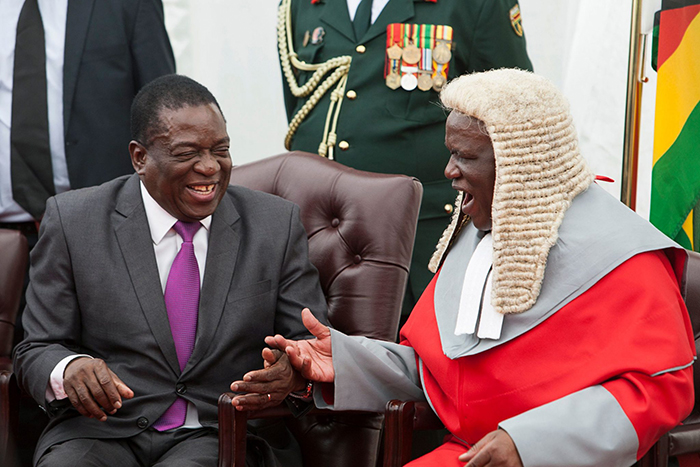Social media has power of shaping and defining perspectives on current issues
By Eric Gono
I belong to a what’s app group under the title: Political Hard Talk with about 257 members. Yesterday, we were discussing the implications of the SC judgment on the constitutionalism in Zimbabwe. It so happens that Mr. Mutumwa Mawere is in this group.

His position on the SC judgment is diametrically opposed to mine. He has consistently stated that the disputed judgment is constitutional.
In the group, opinions are shared openly and this robustness has assisted me in refining my understanding of what constitutionalism is and what the respect of the rule of law means or can mean to a country like Zimbabwe.
He also stated: “Whilst today the opposition MDC Alliance was thrown into quandary following the decision by the Speaker of Parliament Advocate Mudenda, to recall 4 of the legislators pursuant to a request by the recently re-instated Secretary General of the MDC-T, Senator Douglas Mwonzora.”
The Speaker invoked s129 (k) of the Zimbabwean Constitution in arriving at the decision to recall the legislators.
It was only yesterday that I requested Mr. Mawere to furnish me with a copy of the Reconstruction Act that was used to place SMM Holdings Private Limited (SMM) under the control and direction of a state-appointed Administrator, Mr. Afaras Gwaradzimba.
Until yesterday, I was under the impression that the Reconstruction Act was a law of general application and it had never dawned on me that it is a fascist law that permits the government to divest and deprive shareholders and directors of the control and direction of a company without the involvement of the judiciary.
Reading the Act from its title to the content of the provisions, I can understand why former Minister, Prof Jonathan Moyo called it a barbaric and satanic piece of legislation.
The SC judgment has had the effect of provoking a keen interest by the public on issues related to the importance of the rule of law in making Zimbabwe great.
I believe that the interest generated by the SC judgment provides a unique opportunity to raise awareness about the link between prosperity and the rule of law.
The impartiality of the judiciary continuous to be a contentious issue not only because the same bench that ruled that the ascendancy of President Mnangagwa to the position of President of Zimbabwe was constitutional has failed to recognize the gross constitutional violations in a law like the Reconstruction Act.
With respect to my party, the SC judgment when measured against the rulings by Justices Chiweshe and Malaba in respect of President Mnangagwa’s matters clearly exposes the partiality and lack of independence of the Courts.
Against this backdrop of inconsistent and hypocritical judgments, it is important to out the spotlight on the judiciary using case studies including the genesis and operations of the Reconstruction Act.
From what I have learned so far, I believe it is vital and beneficial to learn from these case studies in order to raise consciousness about the urgency of inculcating the culture of respecting the rule of law.
I am inspired to play my part in sharing the lessons from the case studies that I am reviewing in relation to the facts and circumstances of the SMM saga, ED and Chamisa’s ascendency to party positions and the manner in which the judiciary has handled the matters.
The biggest lesson I have drawn is that the principal players in the SMM matter being Patrick Chinamasa and Mnangagwa were the key players in the coup of 2017.
In both matters, the judiciary proved impotent in protecting the constitution. Both schemes involved illegal assumption of power and rights outside the four corners of constitutionalism.
Last night I appeared on Mr Mawere’s live Facebook Civics Literacy show focusing on constitutionalism in which I was asked to identify 2 to 3 Zimbabweans who stand out as champions on constitutional matters, I was not able to identify such persons.
This has inspired me to step forward and be the change I want to see. It is my contention that without citizen vigilance, the prospect of a better and inclusive Zimbabwe are gloomy.






